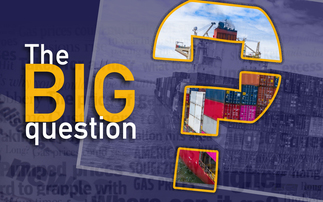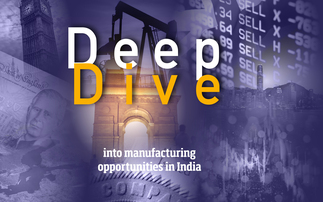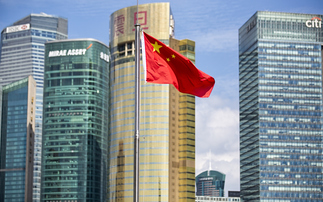In recent days we have seen harrowing pictures of refugees fleeing the political crisis in Venezuela. It is a tragic situation to see such a humanitarian crisis, with border conflicts and a political vacuum at the heart of government.
The country is suffering an unprecedented humanitarian crisis, one that is even more difficult to comprehend considering that the country sits on the biggest oil reserves in the world.
A combination of failed policies, ideology and corruption has pushed Venezuela into the abyss, with constant electricity blackouts and shortages of the most essential goods, such as medicines and baby food.
Flows vs friction: Post-pandemic Asia will see a boom in long-term equity markets
The economy is floundering and the country's citizens are fleeing the country in staggering numbers. All the elements of a multi-layered crisis are in place.
Who can bring salvation to the thousands caught up in this situation, if not foreign governments and investors prepared to fund a national revival?
The pitiful state of affairs is not helped by heavy US sanctions hitting the poorest and the lack of agreement among international leaders about who to recognise as holding legitimate power in Caracas.
The US sanctions and a ban on trading Venezuelan sovereign bonds have put actions by US-based creditors to pursue claims over their contractual rights on ice, while in the UK, Westminster's ambiguous stance over which government it recognises has stalled moves by creditors to reach a settlement through the UK courts.
Whether this is an unintended consequence of the well-meaning stances of both governments or not, the implications for the future of Venezuela and its poorest people, and potentially frontier market sovereign debt issuance in general, are enormous.
Clearing the blockage
Before an economic recovery can become reality, a resolution must be reached between Caracas and creditors in nearly $150bn of defaulted Venezuelan sovereign and state-backed debt together with PDVSA commercial debt and sovereign expropriation claims.
Without reaching a settlement with creditors any future government in Venezuela will surely be cut off from financing an economic recovery through the international bond markets. Investor confidence risks irreparable damage.
The big funds and foreign investors in Venezuela may not be top of the sympathy list; but without their money and confidence in the enforcement of international debt obligations, how else is any future government going to raise funds to help those hardest hit by political crises?
The blockage lies in international ambiguity over who is the internationally recognised leader of Venezuela. The British government's position is ambivalent and bears no similarity to the crude "gunboat diplomacy" it took part in nearly 120 years ago when it joined a naval blockade of Venezuela (led by a certain other 'President Castro') for defaulting on its debts.
Foreign Secretary Dominic Raab has tweeted that he supports the interim government of Juan Guaidó, who has struggled to regain control of the country and lead it along a democratic path that can guarantee essential liberties, re-establish order and bring about sustainable economic recovery.
This was not helped by Guaidó's recent decision to boycott National Assembly elections, in which his rival Nicolás Maduro's supporters secured a staggering majority - 253 of the 277 seats in the legislature - and perpetuating the socialist Chávez successor in power until 2025.
However, when Raab announced that the UK will keep recognising Guaidó as interim president, the official position of Westminster was still not entirely clear.
Maduro's government is the one that is allowed to maintain an embassy in London. But Raab has yet to spell out which one of the two governments the Foreign, Commonwealth & Development Office recognises formally - or whether, in practice, it recognises both.














